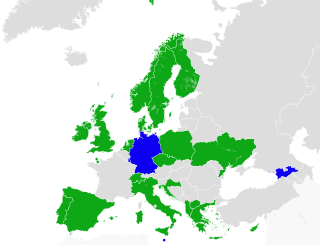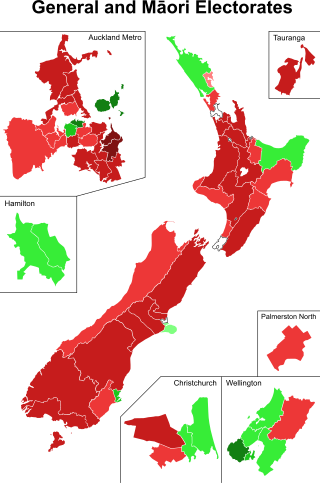
Aotearoa Legalise Cannabis Party (ALCP), also known as the Cannabis Party, is a political party in New Zealand. It is dedicated to the legalisation of cannabis for medical, recreational and industrial use. It was founded in 1996 and has stood in every general election since, but has never won representation in Parliament. Several of its members have gone on to political success after leaving the party.

Drug liberalization is a drug policy process of decriminalizing, legalizing, or repealing laws that prohibit the production, possession, sale, or use of prohibited drugs. Variations of drug liberalization include drug legalization, drug relegalization, and drug decriminalization. Proponents of drug liberalization may favor a regulatory regime for the production, marketing, and distribution of some or all currently illegal drugs in a manner analogous to that for alcohol, caffeine and tobacco.

The use of cannabis in New Zealand is regulated by the Misuse of Drugs Act 1975, which makes unauthorised possession of any amount of cannabis a crime. Cannabis is the fourth-most widely used recreational drug in New Zealand, after caffeine, alcohol and tobacco, and the most widely used illicit drug. In 2001 a household survey revealed that 13.4% of New Zealanders aged 15–64 used cannabis. This ranked as the ninth-highest cannabis consumption level in the world.

The use, sale, and possession of cannabis containing over 0.3% THC by dry weight in the United States, despite laws in many states permitting it under various circumstances, is illegal under federal law. As a Schedule I drug under the federal Controlled Substances Act (CSA) of 1970, cannabis containing over 0.3% THC by dry weight is considered to have "no accepted medical use" and a high potential for abuse and physical or psychological dependence. Cannabis use is illegal for any reason, with the exception of FDA-approved research programs. However, individual states have enacted legislation permitting exemptions for various uses, including medical, industrial, and recreational use.

Cannabis in Switzerland is illegal, though minor possession was decriminalised to a fine in 2012. Several cantons began to allow adults to cultivate and use cannabis in 2012, but this was struck down by federal courts. In 2016, four cities stated they were looking into establishing pilot cannabis clubs. The number of cannabis users in Switzerland is estimated to be around 500,000 among a population of 8 million.
A referendum was held in Slovakia on 23 May and 24 May 1997. Voters in Slovakia were asked four separate questions: on whether the country should join NATO, whether nuclear weapons should be allowed in Slovakia, whether foreign military bases should be allowed in Slovakia, and whether the President should be elected directly. The government left the last question off the ballot paper, leading to both referendums failing to meet the legally required turnout threshold.

In the United States, cannabis is legal in 39 of 50 states for medical use and 24 states for recreational use. At the federal level, cannabis is classified as a Schedule I drug under the Controlled Substances Act, determined to have a high potential for abuse and no accepted medical use, prohibiting its use for any purpose. Despite this prohibition, federal law is generally not enforced against the possession, cultivation, or intrastate distribution of cannabis in states where such activity has been legalized. Beginning in 2024, the Drug Enforcement Administration has initiated a review to potentially move cannabis to the less-restrictive Schedule III.
A referendum on membership of the European Union and NATO was held in Slovenia on 23 March 2003. Voters were asked two questions;
- Do you agree to the proposal that the Republic of Slovenia should become a member of the European Union?
- Do you agree to the proposal that the Republic of Slovenia should become a member of the North Atlantic Treaty Organization (NATO)?

A two-part referendum was held in the United States Virgin Islands on 4 November 2014. Voters were asked whether they approve of extending the term of office of Senators from two to four years, and whether the cultivation and use of cannabis for medical and research purposes should be allowed.

Cannabis in Guam has been legal for medical use since 2015 and legal for recreational use since April 2019. Guam was the first United States Territory to legalize medical marijuana, passing via a ballot referendum in 2014.

Cannabis in the United States Virgin Islands is legal for recreational use since January 18, 2023, under territorial law. Legislation to legalize was passed by the territorial legislature in 2022, and was signed into law on January 18. Medical use was legalized in 2019 through a bill that passed the Senate 9–4. It remains illegal under federal law.

A cannabis retail outlet is a location at which cannabis is sold or otherwise dispensed, either for recreational or for medical use.

Cannabis in Nevada became legal for recreational use on January 1, 2017, following the passage of Question 2 on the 2016 ballot with 54% of the vote. The first licensed sales of recreational cannabis began on July 1, 2017.

Cannabis in New Jersey is legal for both medical use and recreational use. An amendment to the state constitution legalizing cannabis became effective on January 1, 2021, and enabling legislation and related bills were signed into law by governor Phil Murphy on February 22, 2021.

Cannabis in Maryland is legal for medical use and recreational use. Possession of up to 1.5 ounces and cultivation of up to 2 plants is legal for adults 21 years of age and older. In 2013, a state law was enacted to establish a state-regulated medical cannabis program. The program, known as the Natalie M. LaPrade Maryland Medical Cannabis Commission (MMCC) became operational on December 1, 2017.

Cannabis in Slovenia is illegal but decriminalized. While medical marijuana is not allowed, the use of certain cannabinoid drugs is permitted.

Cannabis in Ukraine is legal for medical, industrial purposes, and scientific and scientific-technical activities.
Cannabis in the Cayman Islands has been legal for medical purposes since 2017. The use of cannabis for recreational purposes still remains prohibited.

The 2020 New Zealand cannabis referendum was a non-binding referendum held on 17 October 2020 in conjunction with the 2020 general election and a euthanasia referendum, on the question of whether to legalise the sale, use, possession and production of recreational cannabis. It was rejected by New Zealand voters. The form of the referendum was a vote for or against the proposed "Cannabis Legalisation and Control Bill". Official results were released by the Electoral Commission on 6 November 2020 with 50.7% of voters opposing the legalisation and 48.4% in support.

Question 4 was a voter referendum to amend the Constitution of Maryland in order to legalize cannabis for adult use in Maryland. The referendum was approved overwhelmingly, with more than twice as many voters voting in favor of it than against it and winning in all but one county, on November 8, 2022. It went into effect on July 1, 2023.















